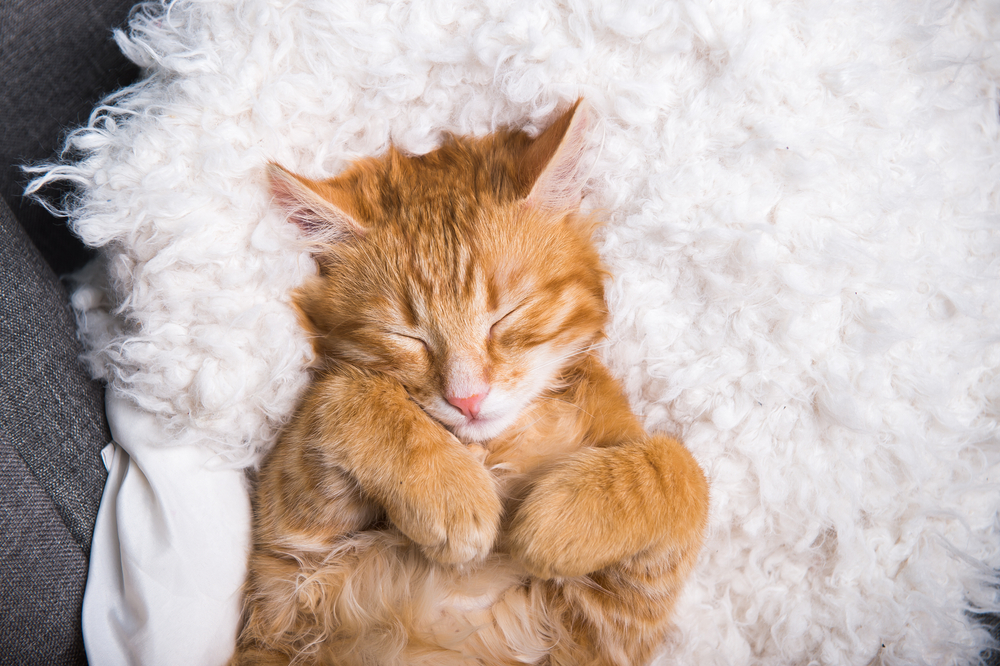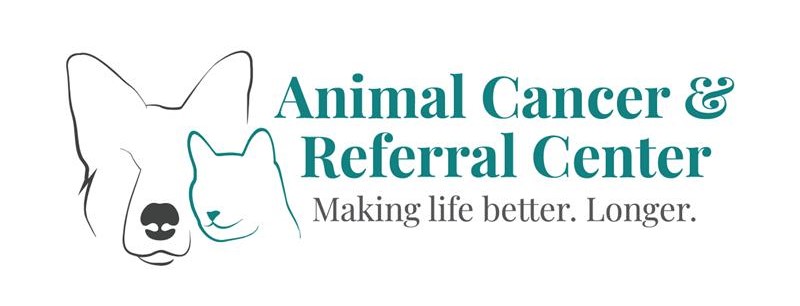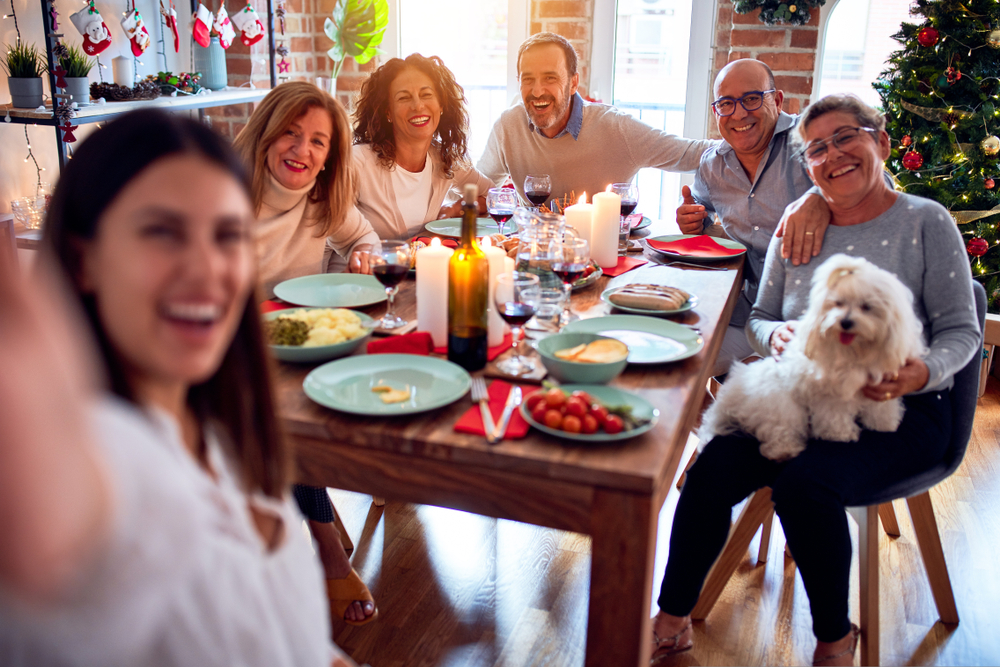#1: Keep your pet’s paws off toxic foods
While spoiling your pet with a Thanksgiving feast is tempting, they may already be nauseous from their cancer or other disease process, or in rare cases, their medications. Many dishes that grace your Thanksgiving spread contain ingredients toxic to pets, or they may be found in your kitchen as you perform prep work. Avoid sharing the following Thanksgiving tidbits with your furry companion:
- Unbaked bread dough — Helping hands are always wonderful in the kitchen, but helping paws—not so much. If your pet eats unbaked bread dough, the fermenting yeast releases gases that will bloat their stomach, which may lead to a life-threatening situation called gastric dilatation volvulus (GDV). In addition to bloat, alcohol from the yeast can enter your pet’s bloodstream and cause alcohol poisoning.
- Chocolate and desserts — The dessert table is always a big holiday hit, but chocolate and xylitol, the popular sugar substitute, should be paws-off for your pet. Theobromine toxicity from dark, rich chocolate can cause vomiting, diarrhea, hyperactivity, and seizures, while xylitol toxicity can cause liver failure and a fatal drop in blood sugar.
- Onions, garlic, and chives — Spicing up your side dishes with onions, garlic, and chives may tantalize your taste buds, but only a small amount can destroy your pet’s red blood cells, causing potentially fatal anemia.
- Turkey bones, skin, or fat — Everybody wants a piece of the Thanksgiving turkey. Your pet may be willing to take the scraps, but the skin is high in fat, and cooked bones are prone to splintering and piercing the gums, stomach, or intestines.
- Butter, fat, and gravy — High-fat foods are a nightmare for your pet’s pancreas. Because they cannot metabolise fat as well as people, cats and dogs can experience crippling abdominal pain after ingesting buttery mashed potatoes dripping with rich gravy. If not caught quickly enough, pancreatitis can be fatal.
If your furry companion’s appetite isn’t up to snuff because of their cancer treatment and you’d like to spoil them with a treat, tempt them with a chunk of skinless, boneless chicken breast, or plain, mashed, dairy- and fat-free potatoes.
#2: Block your pet’s access to holiday decorations
If your pet is undergoing chemotherapy or radiation therapy, they also may not feel as frisky as usual, but they can still get into mischief with holiday decorations. A few of the more common decoration disasters include:
- Lights and candles
- Christmas tree needles and additive-filled water
- Glass ornaments
- Centerpieces and decor made from flowers, plants, gourds, and cornstalks
- Tinsel and garland
- Wrapping paper and ribbon
Keep in mind that your pet may not feel their best and is unlikely to enjoy being “decorated,” so let them celebrate the holidays in their birthday suit rather than making them wear an uncomfortable costume.
#3: Ensure your pet remains warm, dry, and comfortable during the holidays
Although a Texas snowfall is unlikely in our Pearland neck of the woods, freezing rain can happen on occasion. When heading outdoors during the winter holidays, keep a close eye on your senior pet’s comfort level. Older pets, especially those with debilitating conditions like cancer, are much less capable of thermoregulation and can quickly become chilled, stiff, and achy, despite relatively mild conditions. Rain and wind gusts can further suck the heat from your pet, so bundle up when outdoors. When you return inside, dry your pet thoroughly, and provide a warm resting place for them to recover from brisk winds and rainfall.
#4: Create a quiet haven for your pet during holiday celebrations

Does all the holiday celebration commotion overwhelm you on occasion? Your pet may feel the same, especially if they are painful, nauseous, or otherwise uncomfortable from their medical condition. When the festivities become too much for your pet, ensure they have a safe, quiet retreat, and enforce that the area is off-limits to guests. Deck out your pet’s haven with a cozy bed, fleece blanket, calming music, pheromone therapy, and a Kong stuffed with their favorite treats, and they’ll likely enjoy their party for one much more than the general chaos.
#5: Stock up on pet medication refills before the holidays
Most businesses are closed on major holidays, including veterinary hospitals, so call in your pet’s medication refills well in advance. Take into account your family veterinarian and our hospital’s hours of operation, along with potential shipping issues of less-common chemotherapeutic agents and other medications. Also, know the location of the nearest emergency hospital should your sick pet need help when we are closed.
As the holidays approach, the Pearland Animal Cancer and Referral Center team wishes you and your pet a happy holiday season. We understand the holidays can be a difficult time when your pet has cancer, but our team is always here for you and your cherished companion—give us a call.


